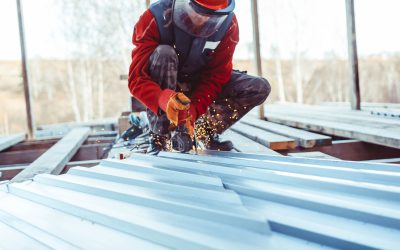When your roof is failing, the best course of action is to replace it. You next consideration is which roofing material to use. Traditional asphalt roofing is only good for two or three decades, depending on quality and outdoor weather. Current metal roofing Puyallup WA, on the other hand, can easily last fifty years or more with minimal maintenance. Metal roofing is no longer the old corrugated tin you might have seen before. Today’s metal roofing is made primarily from lightweight steel and aluminum although copper, titanium or zinc may be used for special architectural purposes such as classic home restorations. Metal roof material comes in a variety of styles which can easily match the craftsmanship of any home.
All steel metal metal roofing Puyallup WA is coated by a protective barrier on both sides. This metallic coating, which is applied before any paint, helps protect the steel from rusting. The most common of these coatings is galvanized. The other coating, galvanized mixed with aluminum, is considered more durable by many contractors. By it’s nature, aluminum roofing doesn’t require any galvanizing for extra protection.
To help the consumer in selecting which paint system is best for their homes, a voluntary certification system has been established. The Metal Construction Association has spent numerous years of testing and research to establish the guidelines of this certification. While not all companies take advantage of the MCA Certification Stamp, even when their product meets or exceeds the standard, your contractor should be able to tell you what level, standard or premium, the material would qualify for.
Most aluminum and metal roofing Puyallup WA is created in large rolls as this is usually more economical, but granular coated steel tiles, shingles and shake are produced by stamping the galvanized steel. These are then treated with an acrylic coating embedded with granular stones and baked in a kiln. Steel roofing is manufactured and sold by gauge (thickness) generally ranging from 24 to 26 where the lower the gauge, the thicker the material. Aluminum on the other hand is measured in decimal thicknesses normally ranging from .023 to .040.








